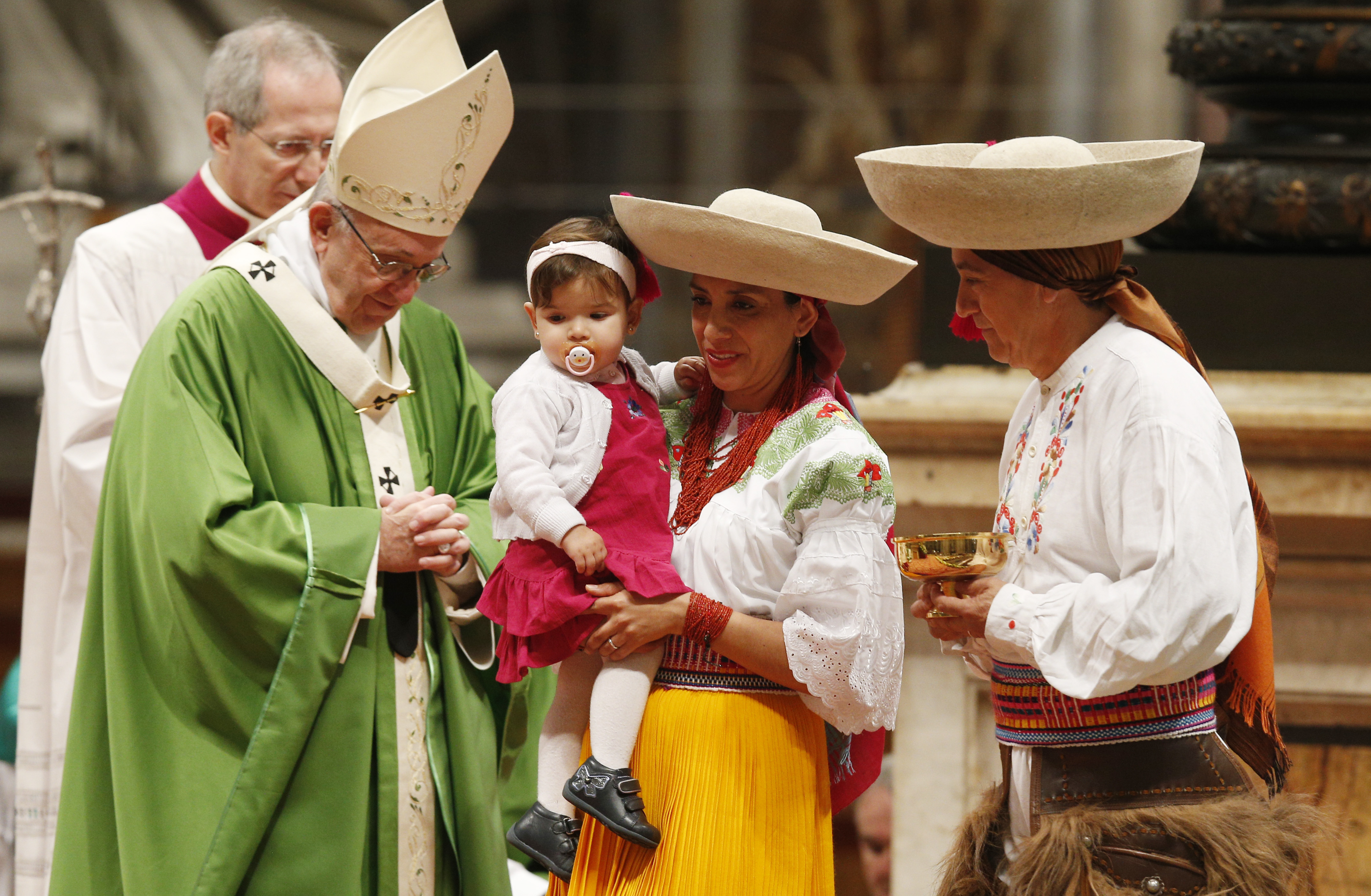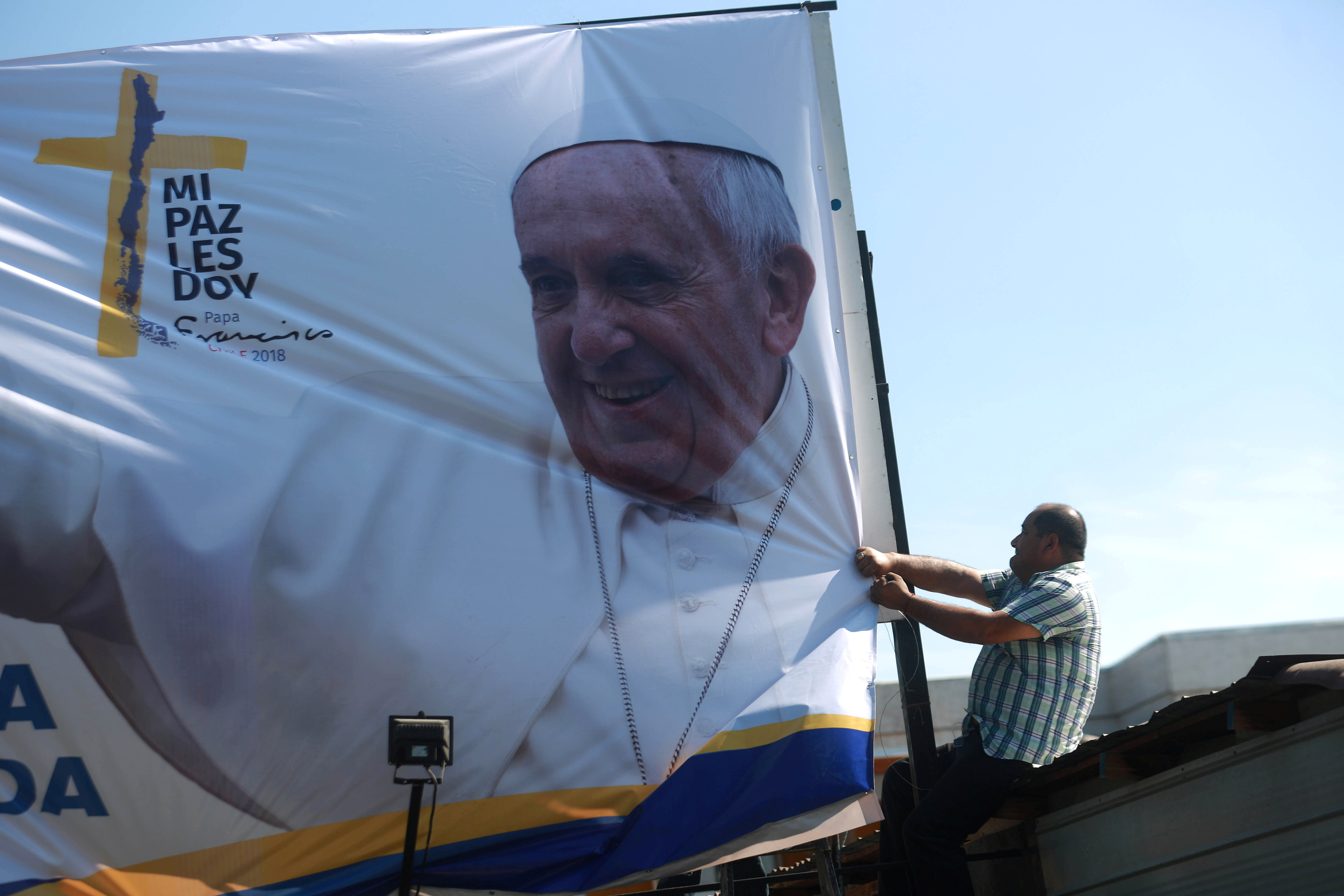Roland Joffé’s Oscar-winning film, The Mission, depicted courageous Jesuit missionaries of the 18th century risking their lives to evangelise a remote South American community. While they won over people to Christianity, their mission was eventually suppressed by a papal envoy who gave into pressure from European colonialists who wanted the local people as slaves.
Fast forward a few centuries and the tables have dramatically turned. Today, the Church has a Jesuit Pope imbued with a missionary fervour who today is embarking on his sixth visit to Latin America where he will be throwing the full weight of papal power behind speaking out for the continent’s indigenous communities.
Pope Francis' advocacy for these communities during his visit to Chile and Peru is likely to be at the top of the agenda of his visit where he is expected to closely link protecting the indigenous with protecting the health of the planet.
The 81-year-old Pope is, it seems, increasingly worried about the future of humanity. “I fear a nuclear war,” Francis told reporters on board the plane to Chile.
He said the world is “at the limit” and “just one accident away” from a war that could destroy a large part of humanity. “Yes, I am really afraid,” he explained. “We can’t allow the situation to plummet. We must eliminate nuclear weapons.”
Francis was talking about a photo of a boy in Nagasaki carrying his dead brother following an atomic bomb which he handed to journalists travelling to South America with him. The Pope had asked the Vatican to distribute the photo to the media at the end of last year with the caption “the fruit of war”. He said: “This picture I found it by chance, and it was taken in 1945. He is a child and on his shoulders, he is carrying his dead brother, who is waiting for the crematorium in Nagasaki.
"I got upset when I saw this, so I wanted to write: ‘The fruit of war’. I wanted to print it out and give it to you because an image moves more than a thousand words.”
Away from highlighting the threat of nuclear disaster, the Pope is going to highlight the problems facing the world’s environmental future. On Friday Francis will meet and have lunch with a group of Amazonian people in Puerto Maldonado, a city known as the gateway to the southern Amazon.
This is going to be seen as effectively the starting the synod of bishops gathering in October 2019 on the Pan-Amazon region, the first time that the Church’s global leadership has collectively addressed this topic. Cardinal Lorenzo Baldisseri, the Vatican prelate in charge of the synod gatherings, will also be in Peru during this part of the trip.
For Francis, the Amazon highlights a major theme of this papacy set out in his encyclical letter on the natural world, Laudato si’ : that protection of the planet and defence of the world’s poorest go hand in hand.
Illari Aragon, in charge of the Peru programme for England and Wales’ Catholic development charity, Cafod, said: “Peru is one the countries that will be most affected by climate change, despite being responsible for just a fraction of global CO2 emissions.”
The Amazon is home to 34 million people and more than 350 indigenous communities but during the last 40 years 20 per cent of it has been deforested, most of it to make way for cattle farming. Meanwhile, Peru’s government says it wants more mining of its natural resources in order to boost economic growth.
The Latin American Church has for years sought to speak out for indigenous peoples, something stressed in the 2007 Aparecida document – which Francis played a key role in the drafting of. That document talked of how indigenous people have been forced off their lands due to invasion or degradation, largely down to an “economic and cultural globalisation” which jeopardises their existence. Francis may well talk about new forms of “colonisation” that run roughshod over vulnerable communities in order to boost the profits of massive global companies.
Two days after his arrival in Santiago on Monday evening, Francis will have another meeting with an indigenous community. On Wednesday he is travelling 416 miles south of Chile’s capital to Temuco in the heartlands of Araucania, where he will meet a group of Mapuche people and have lunch with them. Renowned for their fierce resistance to the Spanish conquistadors, they are currently locked in a dispute with the government over land rights having lost their ancestral territories with the establishment of modern day Chile.
When he meets them Francis is expected to speak out in favour of their rights although is likely to stress the importance of a non-violent approach.
The trip will also see the Pope deliver a strong anti-corruption message, something that will have particular resonance in Peru where former president Alberto Fujimori was recently pardoned following convictions for corruption and human rights abuses.
“A topic the Pope feels strongly about and to which he has returned in very pointed language is corruption, which hinders development and the reduction of poverty and misery,” Cardinal Pietro Parolin, the Holy See’s Secretary of State, explained ahead of the visit.
Like John Paul II in Poland during the end of the Cold War, the first Latin American Pope has major sway across his home continent – including Central America – and has been called in as a mediator in Colombia, Cuba and Venezuela.
This is also a trip that is as close as Francis has come to a homecoming and will see him flying over Argentina on his way to neighbouring Peru. When he does so he will send the country a message, something that is likely to be closely studied in a country where every word the Pope utters – and every announcement in the Vatican – is assessed for any potential domestic political impact.
While in Chile, Francis is also going to be meeting with victims of General Augusto Pinochet’s brutal military regime, something he has personal experience of. The Pope was leader of the Argentinian Jesuits during the period that the country’s vicious military junta waged a “dirty war” against dissidents. These included two Jesuits, Orlando Yorio and Franz Jalics, who were tortured and detained and whose treatment by then Fr Jorge Bergoglio has been the subject of heated debate.
“It won’t be an easy visit,” Cardinal Parolin, who is accompanying Francis, explained. “But it will be exciting.”
Tensions are high in Chile. Just a few days before the Pope’s arrival four churches were attacked with firebombs while the resident of the papal ambassador in Santiago, where Francis will be staying, was briefly occupied.
Like a number of Latin American countries, Chile is not as fervently Catholic as it once was with opinion polls showing a lack of enthusiasm for the papal visit. There is also talk of protests.
It is, however, almost a rite of passage for there to be controversy – or tension – ahead of a papal visit as seen recently with Francis’ trip to Myanmar and Bangladesh. And those who remember Benedict XVI’s visit to Britain in 2010 will recall reports of 10,000 protesters marching through the streets of London. Despite these relatively large numbers they did not detract from the success of the visit.
This dissatisfaction with the Church in Chile Church’s sexual abuse crisis is likely to feature in both countries where there have been major scandals. In Chile, Francis was criticised for appointing a bishop, Juan Barros, accused of turning a blind eye to abuse while in Peru, the Vatican recent announced the takeover of a lay group whose founder allegedly sexually abused children. There is talk of the Pope meeting victims during the trip, something which Holy See spokesman Greg Burke described as “not impossible”.
The abuse crisis, which was initially seen by some power in the Church as an American and Irish problem, has become a global problem with new scandals emerging in places such as Latin America and the Philippines. Francis has admitted that the Church was slow to respond to the problem, something which the Pope has been accused of.
Peter Saunders, a former member of the papal commission on child protection, says he plans to be in Chile to raise protests against the appointment of Bishop Barros who allegedly knew about the abuse committed by Fr Fernando Karadima.
And in Peru, the abuse concerns the lay founder of the Sodalitium Christianae Vitae, Luis Fernando Figari, while the group has been closely linked with Peruvian elites, a fact that in itself will raise alarm bells for Francis.
The major purpose of this trip, as in any papal visit, is for the Pope to encounter Chile and Peru’s local churches: to foster and encourage what is going well and to identify any problems.
Like those first Jesuits from generations ago, the Pope wants the Church in his home continent to have a missionary spirit; to better serve their local communities; find new ways of proclaiming the Gospel and to avoid becoming locked into a cycle of self-reverence.
Watch Christopher Lamb's Facebook Live on the Pope Francis trip here.



 Loading ...
Loading ...